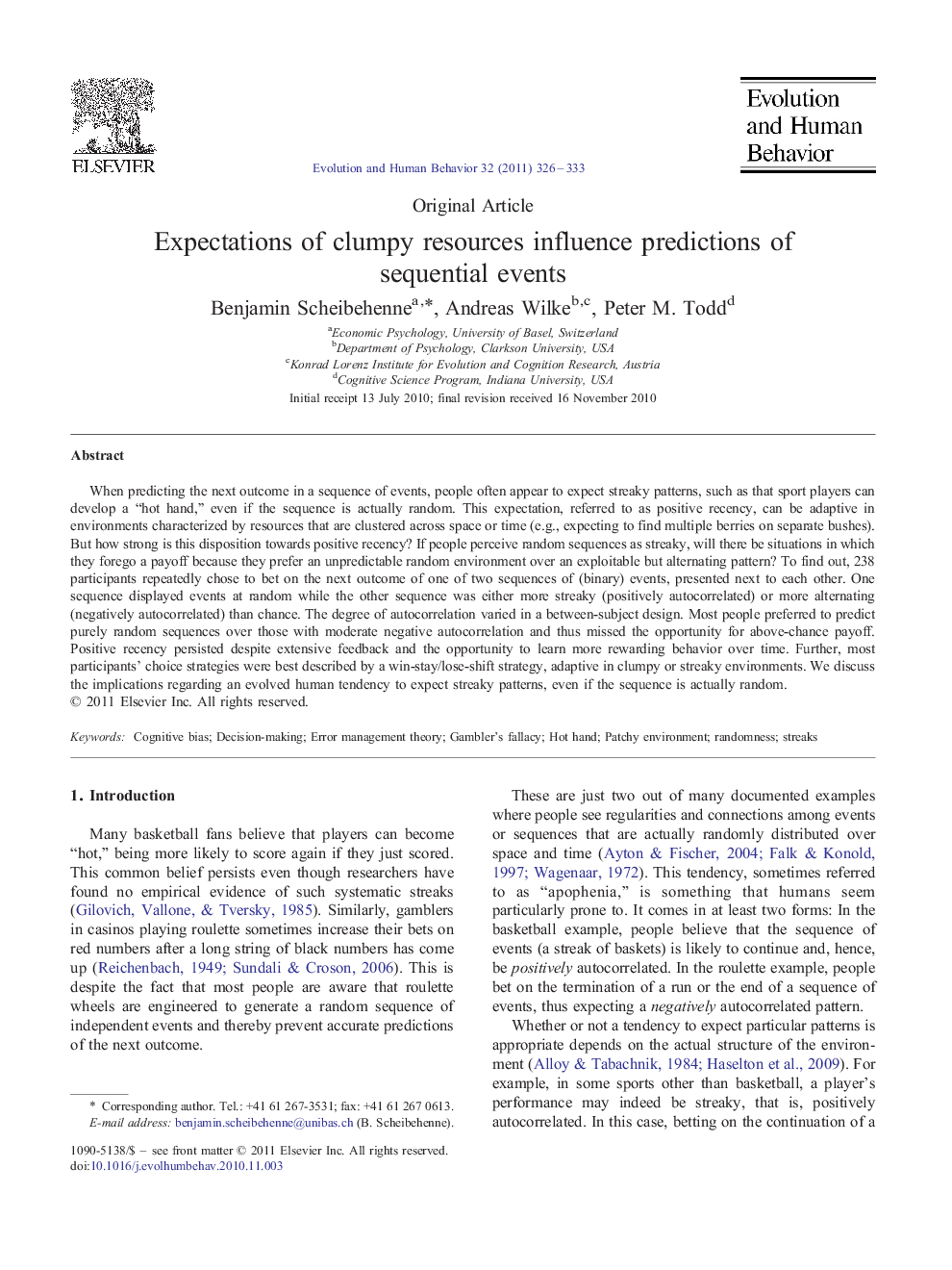| کد مقاله | کد نشریه | سال انتشار | مقاله انگلیسی | نسخه تمام متن |
|---|---|---|---|---|
| 943283 | 925451 | 2011 | 8 صفحه PDF | دانلود رایگان |

When predicting the next outcome in a sequence of events, people often appear to expect streaky patterns, such as that sport players can develop a “hot hand,” even if the sequence is actually random. This expectation, referred to as positive recency, can be adaptive in environments characterized by resources that are clustered across space or time (e.g., expecting to find multiple berries on separate bushes). But how strong is this disposition towards positive recency? If people perceive random sequences as streaky, will there be situations in which they forego a payoff because they prefer an unpredictable random environment over an exploitable but alternating pattern? To find out, 238 participants repeatedly chose to bet on the next outcome of one of two sequences of (binary) events, presented next to each other. One sequence displayed events at random while the other sequence was either more streaky (positively autocorrelated) or more alternating (negatively autocorrelated) than chance. The degree of autocorrelation varied in a between-subject design. Most people preferred to predict purely random sequences over those with moderate negative autocorrelation and thus missed the opportunity for above-chance payoff. Positive recency persisted despite extensive feedback and the opportunity to learn more rewarding behavior over time. Further, most participants' choice strategies were best described by a win-stay/lose-shift strategy, adaptive in clumpy or streaky environments. We discuss the implications regarding an evolved human tendency to expect streaky patterns, even if the sequence is actually random.
Journal: Evolution and Human Behavior - Volume 32, Issue 5, September 2011, Pages 326–333